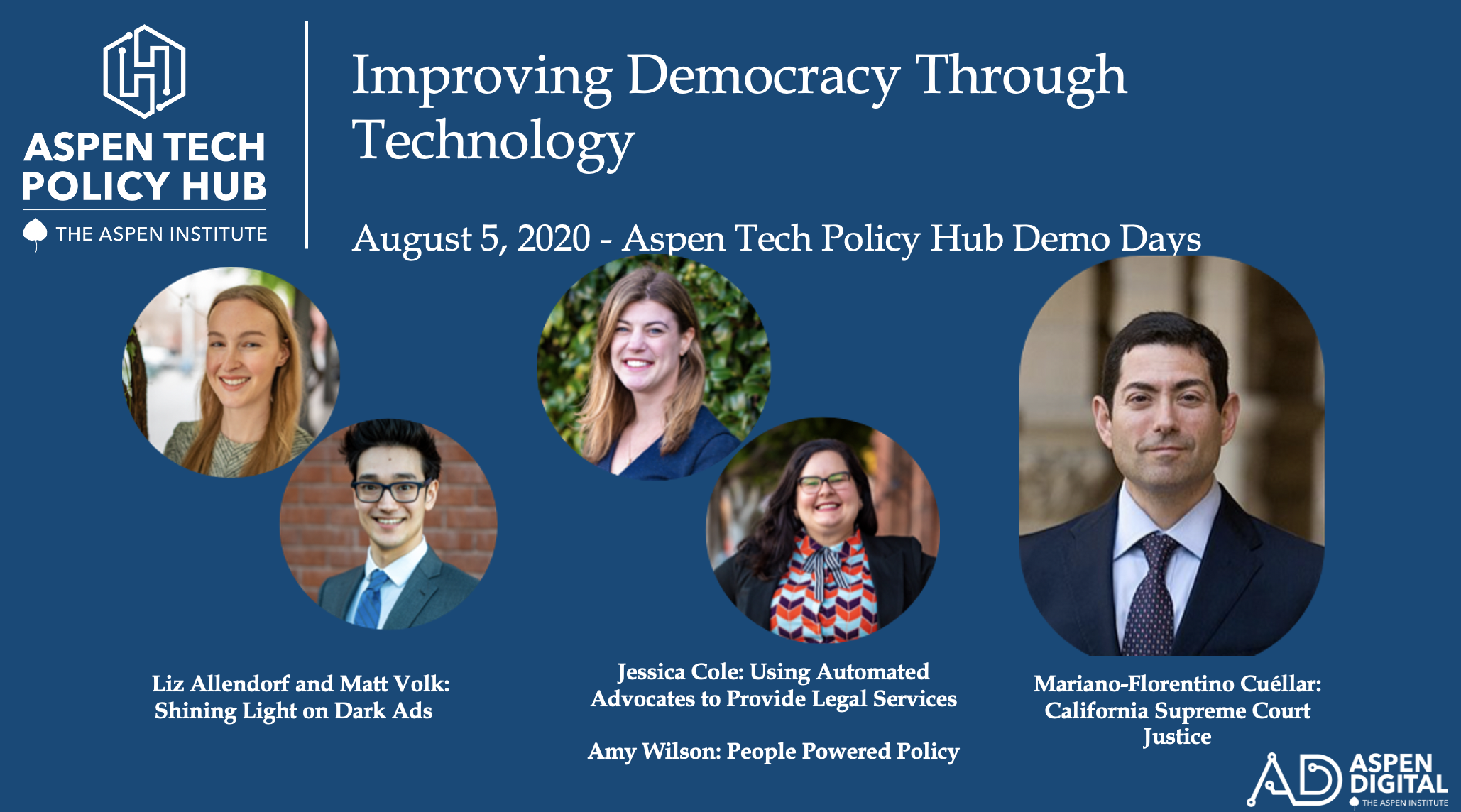


San Francisco, CA – It is our pleasure to introduce the fourth set of projects from our 2020 Fellowship class.
The projects, focused on Improving Democracy Through Technology provide exciting solutions for political disinformation, providing legal aid to underserved communities, and improving two-way communication between city governments and their constituents. We released the projects at our webinar today; you can watch the video of the event here.
We invite you to read more about the projects below, and to check them out on our website: Aspen Tech Policy Hub Projects. Please also join us by RSVPing for our next webinar, August 19 at 9am PT/12pm ET, on Disaster Tech: Preparing for Unprecedented Crisis, where we will launch innovative tools on the topics of responding to the climate crisis and coordinated disaster response.
very day, tens of millions of Americans view political advertisements on social media that are disguised as unpaid content, also known as “dark ads.” According to researchers from New York University, between May 2018 and June 2019, more than half of Facebook pages that displayed U.S. political ads concealed the identities of their backers. The $1.1 billion spent on political ads on Facebook in that period makes plain that some political organizations are eager to sway the public’s vote without disclosing that they are paying for advertising. This project proposes two solutions: a series of actions that the Federal Election Commission (FEC) and Federal Trade Commission (FTC) could take to make online political ads more transparent and a game that educates potential voters about dark ads.
The United States faces a crisis in its civil courts, where more than 80% of low-income households lack adequate legal representation. A promising new class of technology tools (“Automated Advocates”) can help close that gap, but regulatory complexity about who may practice law make it difficult for companies to build these tools and for regulators to distinguish good actors from bad. This project paves the way for the development of Automated Advocates by coalescing the field around a common definition and set of principles for Automated Advocates. It also recommends that regulators include and incentivize Automated Advocates in any state and national regulatory sandboxes.
City governments often struggle to obtain real-time feedback from
their constituents on impending policy decisions. At the same time, constituents from disenfranchised communities often struggle to get the attention of elected officials to drive policy change. People Powered Policy (P3) is a website and strategy that encourages two-way communication between city governments and their constituents. Communities will have a place to share stories, thoughts, and questions about topics they care about, and the platform gives them a direct line to city staff. The platform also allows city officials to solicit input on policy questions and create feedback loops throughout the policymaking process. P3 is being piloted with the City of Oakland, and the project team hopes the model can scale across city governments.
Learn more about these and other projects here.